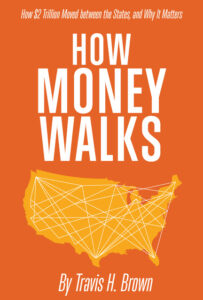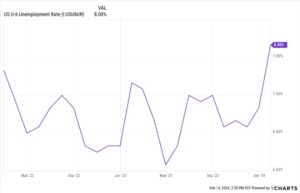Trump’s New York Civil Fraud Case:
What, Exactly, Was the “Crime” He Committed?

Last week, a Manhattan judge fined Donald Trump and The Trump Organization $355 million and barred him from serving in a top role of any New York company for three years. The charge was that he “fraudulently inflated his wealth for financial gain,” including “falsifying records, issuing false documents, and related conspiracy offenses.”
This was wonderful news for the Anti-Trumpers. You could hear them gloating about it on every mainstream talk show.
For anyone who knows little to nothing about how the real estate business works, this charge must sound like a serious violation of law, and the penalty indicative of a Bernie-Madoff-level scam.
In fact, what Trump and The Trump Organization did was remarkably common in the high-finance portion of the real estate universe. It happens commonly, not just in NYC, but in every city in America and in every country. Moreover, the over-valuation charge is essentially meaningless because it involves a part of the loan application that is extraneous to what the bank looks at in determining whether a loan seeker has the liquidity and the resources to pay off the loan.
Let me break it down for you…
Imagine you are a big real estate developer wanting to construct a new building. The cost of construction is, say, $30 million. So, you go to a bank to get a construction loan. The bank wants collateral to protect its investment. And what they ask you to do is provide them with two sorts of numbers.
Their first and most important requirement is that you have liquid assets that (a) are sufficient to cover the loan, and (b) they can easily claim if your project fails to hit its targets. This would include cash and certain physical assets that, if needed, the bank could cash in immediately and without complication. (Assets that are encumbered in any way are correctly considered by the bank to be next to worthless for them.)
Banks will also ask for a list of assets that they would have no intention of going after – all sorts of assets that would give them a general idea of your net worth.
Valuing real estate is not a precise science. It involves calculations that are based on numbers that are really guesstimates, as well as guesses about what the property will be worth over the span of time that the loan is in play. If you have ever bought a house using the value of an existing house for collateral, you know that there is likely to be a range, depending on the bank’s assessment and the assessment of an expert you hire.
When it comes to valuing the assets on list one, the bank is going be conservative to give it leeway against miscalculations or future imponderables. If you think the bank’s valuations are significantly understated, you will make your argument. But the final decision is the bank’s.
Now here’s what I think is crazy about Trump’s case. The assets that the judge says he grossly overvalued were in list two – assets meant to provide a general idea of his overall net worth. They were not assets that the bank really cared about.
It is quite possible that Trump overestimated the value of one or more of the assets on list two. But that is, at best, a technical violation that would have no impact on the solidity of the loan. And to me, it simply sounds like something he has been doing from the beginning – overestimating his overall net worth so he seems richer than he is.
Several things happened here that convince me the entire thing was another politically motivated example of rogue judges and prosecutors trying to put Trump in jail by cooking up and prosecuting phony charges. It was worse than the Georgia case because there was no trial and no jury. It was one judge, who either knows nothing about how real estate loans work or is downright unethical, deciding to exceed his legal and moral authority in order to cripple Trump financially.
To make matters worse, the way this judgment works, Trump must pay the fine before he can appeal the decision. One judge. No trial. No jury. And a huge fine that he must pay before he can get a chance to defend himself.
Remember… nobody was hurt in these loan transactions. Not the bank. Not the bank’s investors. Not the businesses involved in the project. Nobody. On the contrary, everyone made money.











